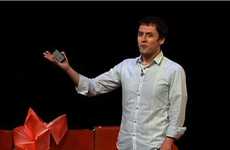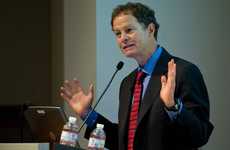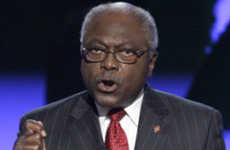
David Pizarro Keynotes
David Pizarro's keynotes focus mainly on the psychology of moral judgment and how certain emotions...

Need Inspiration?
Get inspired by 4,000+ keynote speaker videos & our founder, a top keynote speaker on innovation.
David Pizarro's Psychology Keynote Explains How Disgust Affects Voting
Elise Ying-Hei Ho — October 24, 2012 — Keynote Trends
References: psych.cornell.edu & youtube
Associate Professor at Cornell University David Pizarro ventures into the world of disgust to see how the emotion plays into socio-moral and political issues in his voting psychology keynote.
Children have built-in "poison" detectors that adults will associate with a sense of disgust. This distinguished response is universally the easiest to elicit and works like a one-way road. Any clean object that comes into contact with a disgusting one -- an example Pizarro gives is feces -- automatically becomes contaminated and not vice versa. The strength and power of this emotion is often used to suggest that certain people are associated with these ideas.
In a study presented in Pizarro's speech, research shows that those who are more easily disgusted are more likely to revert to traditional principles. When applied to political and moral beliefs, the statistics predicted acts like voting patterns and perceptions of homosexuality. Even a casual reminder of cleanliness or disease triggered conservative judgement and altered their answers.
Children have built-in "poison" detectors that adults will associate with a sense of disgust. This distinguished response is universally the easiest to elicit and works like a one-way road. Any clean object that comes into contact with a disgusting one -- an example Pizarro gives is feces -- automatically becomes contaminated and not vice versa. The strength and power of this emotion is often used to suggest that certain people are associated with these ideas.
In a study presented in Pizarro's speech, research shows that those who are more easily disgusted are more likely to revert to traditional principles. When applied to political and moral beliefs, the statistics predicted acts like voting patterns and perceptions of homosexuality. Even a casual reminder of cleanliness or disease triggered conservative judgement and altered their answers.
2.3
Score
Popularity
Activity
Freshness

















